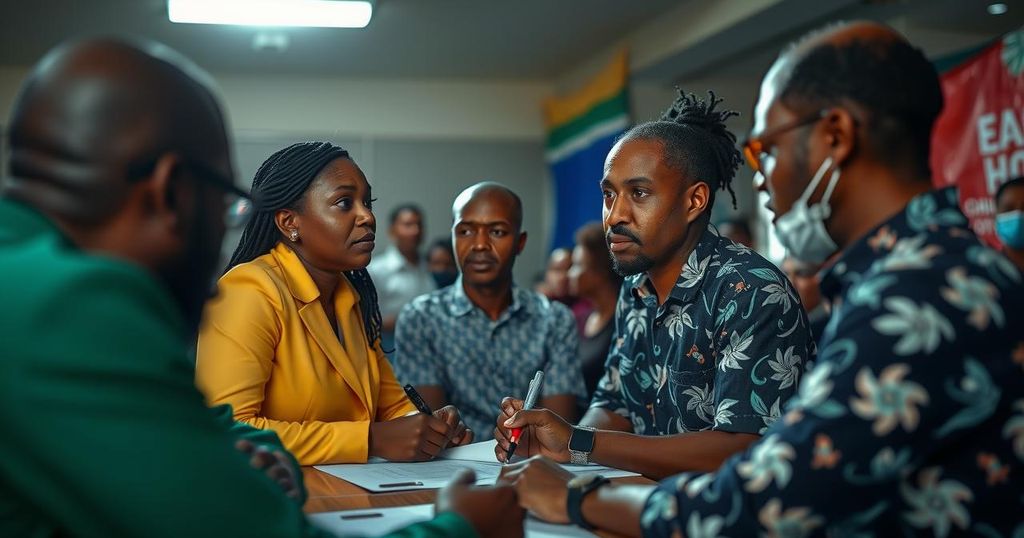Mauritius held parliamentary elections focusing on the cost of living crisis. Prime Minister Pravind Kumar Jugnauth and opposition factions proposed various economic measures. Approximately one million voters are expected to participate in the election, which may influence both legislative and executive leadership for five years.
On Sunday, Mauritius conducted a parliamentary election with a significant focus on the ongoing cost of living crisis affecting its citizens. Prime Minister Pravind Kumar Jugnauth and his primary adversaries have declared their commitment to address this pressing issue, amidst a backdrop of a nation characterized by its strategic position between Africa and Asia and reliant on its robust offshore financial sector, tourism, and textiles. Polling stations commenced operations at 7 AM local time, with several voters present to verify their registration prior to casting their ballots. Voting is anticipated to conclude at 2 PM GMT, with approximately one million individuals expected to determine the 62 legislative seats for the forthcoming five-year term. Despite a projected economic growth of 6.5% for 2024, many Mauritians report not experiencing the gains of this economic promise. The Alliance Lepep coalition, led by Prime Minister Jugnauth, has proposed increases in minimum wages, higher pensions, and reductions in VAT on essential goods. They intend to leverage funds from the UK pertaining to the Chagos Islands’ sovereignty agreement to enhance economic conditions. Conversely, the opposition, primarily under the Alliance du Changement led by Navin Ramgoolam, vows similar pension increases alongside initiatives for free transport and internet services, as well as reductions in fuel prices. The incumbent and challengers are highlighting financial measures that would appeal to the electorate, especially the youth, who are seeking innovation and employment opportunities. In a controversial move last week, Jugnauth’s government temporarily blocked social media platforms, citing national security concerns following the leak of discussions among public figures, but reversed this decision after backlash from opposition parties. The election outcome will determine not only the legislative makeup but also the premiership, as the coalition securing a majority of seats will appoint the next Prime Minister.
The parliamentary elections in Mauritius are pivotal, especially as the country grapples with the effects of rising living costs, which have dominated public discourse. With a population of approximately 1.3 million, Mauritius strives to position itself as a financial hub connecting Africa and Asia, yet many citizens feel disconnected from the economic benefits promised by the government. Current political dynamics showcase a noteworthy contest between the ruling party and opposition coalitions, all pledging to alleviate the financial pressures facing residents.
In conclusion, the recent parliamentary elections in Mauritius focus predominantly on the cost of living crisis that concerns the populace. Candidates across party lines are presenting economic strategies aimed at improving the financial conditions for citizens. The outcome of the elections will not only redefine parliamentary representation but also set the course for future economic policies affecting everyday Mauritians.
Original Source: www.sowetanlive.co.za






